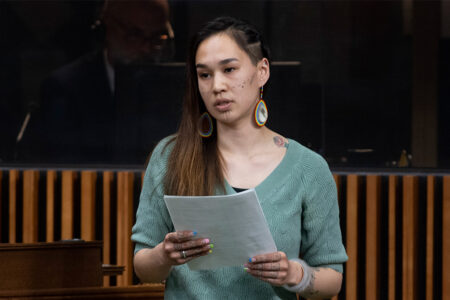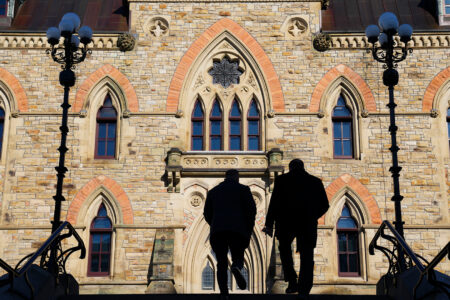
It seems surprising that just 15 years ago, Parliament’s vote redefining marriage to include same-sex relationships passed 158-133 with 16 MPs absent. Ninety-three Conservatives, 32 Liberals, five Bloc Quebecois MPs, and one New Democrat (as well as two Independents) cast a “social conservative” (so-con) vote on this question. These dissenters knew they were swimming against strong cultural trends, but were still part of the mainstream in their political parties.
Much has changed since then and the upcoming federal election campaign will test the commitment of Canadians and their political leaders to tolerance and including people whose views may not fit today’s cultural mainstream.
Current trends and the so-cons
For example, the Liberals and NDP today require MPs to take socially liberal positions; it’s no longer acceptable to leave certain issues to individual conscience. Conservative leaders perform a delicate dance, insisting party policy rejects attempts to re-open issues like abortion or same-sex marriage, while ostensibly defending the free speech and conscience of so-cons within their party.
Given trends during the last two decades, so-cons feel more ostracized and marginalized than ever. Whether it’s on abortion (Morgentaler 1988), LGBTQ issues (same-sex reference 2004, Trinity Western 2018), prostitution (Bedford 2013), or euthanasia (Carter 2015), Supreme Court of Canada decisions have catalyzed significant socially liberal turns.
Few so-cons, therefore, expect politics to answer their concerns. Most political appeals for their votes contribute to a cynical mood at best. They also feel profoundly misunderstood.
The so-con label is one that, for the most part, is imposed, not chosen. The small percentage who embrace the label are divided between purists and incrementalists. Most voters who fit the so-con profile are silent observers. For them, “so-con” is a reluctant identity, disowned because it is most frequently heard as an epithet or insult. The coverage of so-con issues in politics and media tells a story in which they do not recognize themselves.
CBC and the Angus Reid Institute partnered in 2016 to conduct a comprehensive poll that examined the values, beliefs, priorities, and identities of Canadians. As a result, the poll suggested five basic mindsets among the electorate. The mindset dubbed “faith-based traditionalists,” including so-cons, made up 20 percent of the population, the survey found. The group was over-represented among immigrants in Canada less than a decade and visible minorities. And whereas 11 percent of Canadians said they attended religious services weekly, a third of this cohort did.
In their 2017 book Religion and Canadian Party Politics, David Rayside, Jerald Sabin and Paul E.J. Thomas attempted to map the policy outcomes of religious activism in an increasingly secular context. They concluded that reality was far more complex than the popular narrative assumed. For example, assuming all so-cons hold the same views on such issues as abortion and sexual diversity is somewhat outdated, they noted. Another recent factor (at least since the 2015 federal campaign) is the increased prominence of minority religions, which has added to what the authors termed “a new ‘axis’ of contention…centered on the place of minority faiths in the social fabric”.
So what does all of this mean for media coverage of so-cons and their potential influence on the 2019 federal election campaign?
First, nuance is required in defining so-con issues. Few so-cons expect politics to solve their issues, certainly not in the short-term. For example, on abortion, a typical church bulletin includes notices about pregnancy support centres, adoption, counselling programs, and other hands-on activities; these far outnumber political messages.
It would also be a mistake to reduce so-cons to single-issue voters on hot-button issues. We know this because those “faith-based traditionalists” in the 2016 poll overlap significantly with the one-fifth of Canadians labelled as “religiously committed” in a 2018 Cardus and Angus Reid Institute study. These two surveys, based on different criteria and tested through at least four polling samples between 2016 and 2018, point to similar conclusions. The “religiously committed” group tended to be more pro-immigrant than the overall population; and were less white and Christian than typically presumed. Forty-nine percent of Canadians born outside the country reported, in the 2018 poll, receiving material support from faith-based communities on their arrival and 63 percent relied on faith communities to form a community or network.
Environmental issues are also significant for many faith communities, given that stewardship of creation is a significant theme in most religious traditions. The Evangelical Fellowship of Canada’s faith toolkit for churches includes environment among priority concerns. Likewise, poverty relief is a significant concern, demonstrated by hands-on involvement and financial support for faith-based social service agencies.
Looking for signs of respect
Being used as fodder in a political culture war context has a perverse impact. Religious pro-life supporters, convinced that abortion involves something more than a collection of tissue, are expressing love for their neighbour. Some do it caringly, others less delicately. However, the declaration that anyone who veers from a publicly accepted orthodoxy is violating human rights is debilitating to democracy. Remember the Canada Summer Jobs attestation debacle – when the beliefs of potential employers including anti-poverty groups and church camps – disqualified them from government grants? That sent a loud message so-cons were unwelcome in public life. Quebec’s new secularism law takes things even further. Turban-wearing Sikhs, and those of any faith wearing religious symbols, are effectively being banished from provincial public service. While religious freedom in Canada is very different than in countries where believers risk their lives to follow their convictions and worship, denying privileges in society based on people’s beliefs still matters greatly. During the October 2019 federal election campaign, so-cons will undoubtedly look for signs of genuine respect as they consider how to cast their ballots.
Fifteen years has marked a hasty change in the place that so-cons have in Canada. Most so-con Canadians, who like others pay relatively little attention to politics but vote as a matter of responsible citizenship, face an increasingly hostile culture. They view themselves as good citizens, loving their neighbour through their personal relationships and also by donating and volunteering in their faith communities and neighbourhoods. But those stories are rarely reported. So-cons only see themselves in the news when others declare how outdated or unwelcome so-con views are.
That hostility is seen in the numbers. When a Cardus-Angus Reid Institute study in 2017 asked if the presence of religion in public life was a net positive or a negative in society, the results were startling. Those who were religiously committed, regardless of tradition, were more positive about the contribution of others, including those of different faiths. Those who were least religiously committed were reluctant to acknowledge the benefit to society of anyone but themselves.
Sadly, it would seem that the constructive involvement of faith in Canadian public life has taken a back seat to a culture war mentality with so-cons perceiving themselves on the defensive.
The question for political leaders and the media is the extent to which so-cons will be respected players in the 2019 campaign game or be tossed around as a political football. While the resistance offered by a group religiously committed to live by the Golden Rule may be less militant than other political actors, the upcoming campaign will still test Canadians’ commitment to tolerance and inclusiveness toward those whose views may not be in the cultural mainstream.
This article is part of The media and Canadian elections special feature.
Photo: Shutterstock/By Darryl Brooks
Do you have something to say about the article you just read? Be part of the Policy Options discussion, and send in your own submission. Here is a link on how to do it. | Souhaitez-vous réagir à cet article ? Joignez-vous aux débats d’Options politiques et soumettez-nous votre texte en suivant ces directives.








